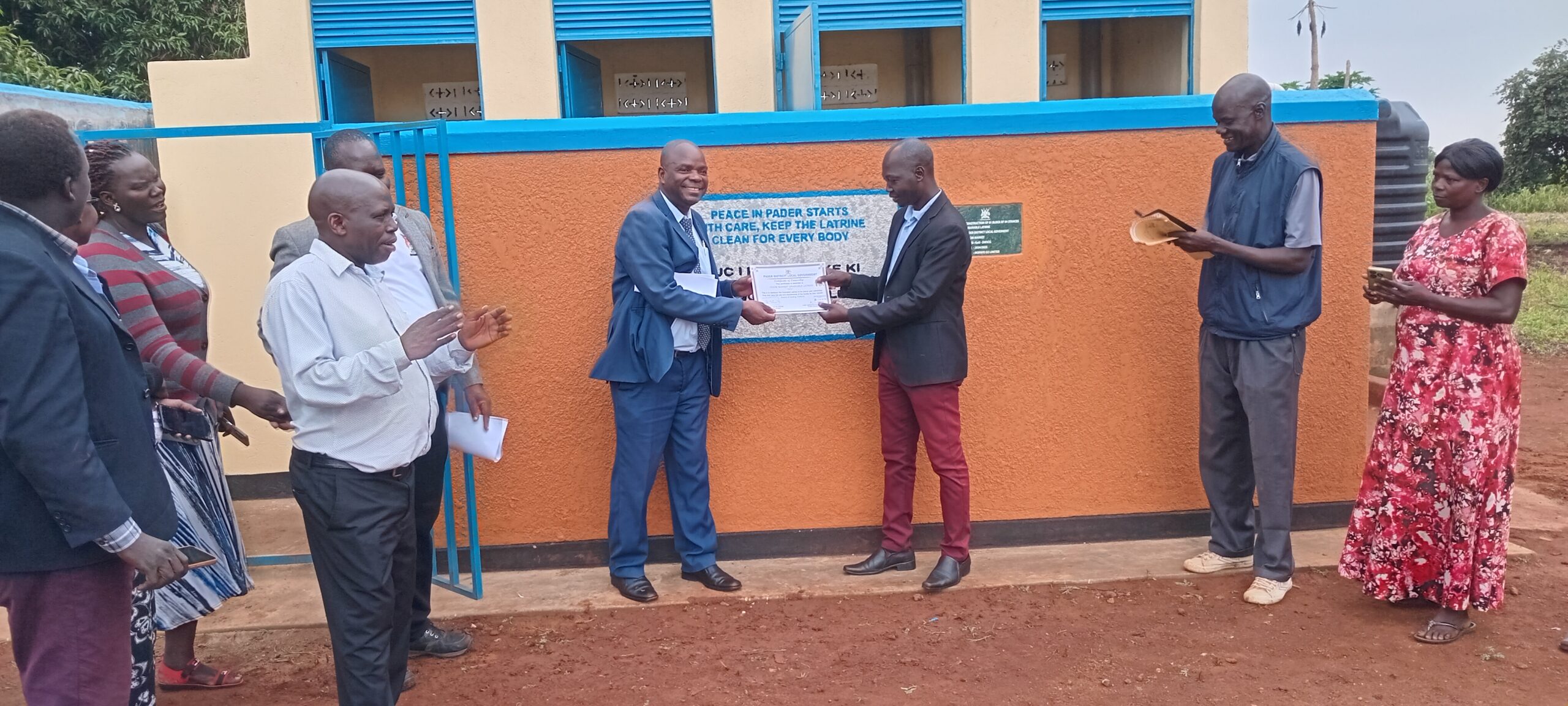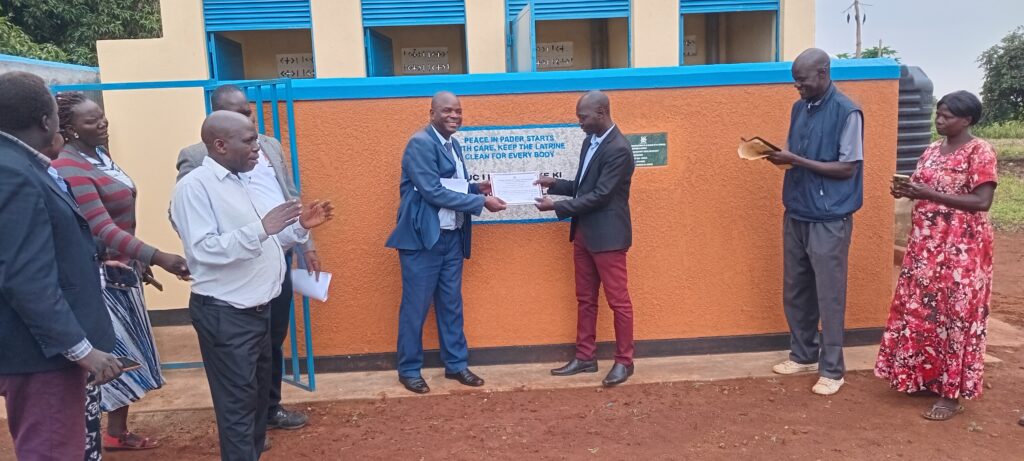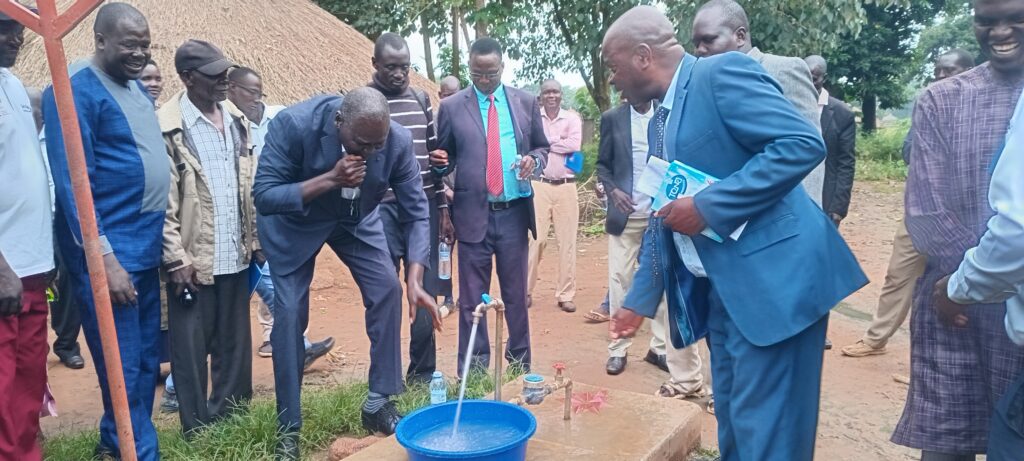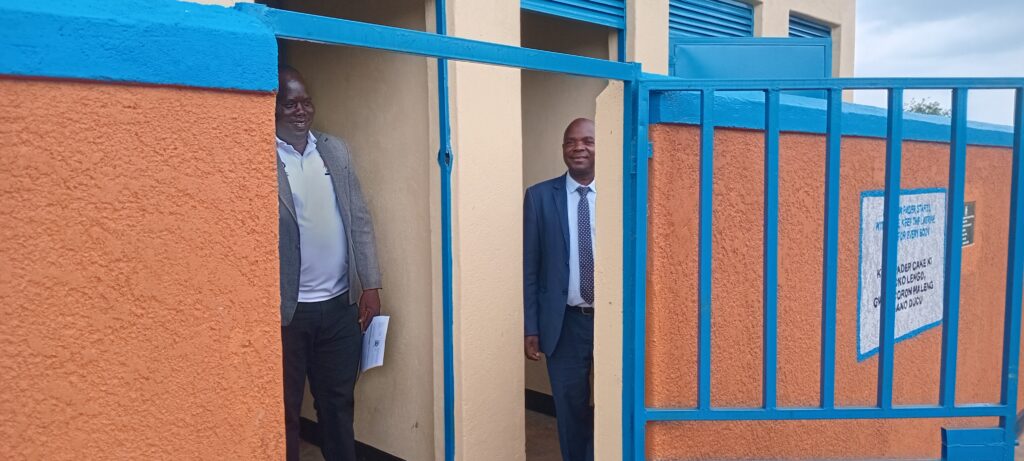
 LUO FM
LUO FM

 LUO FM
LUO FM
23 August 2025, 1:11 pm

By Geoffrey Okwong
Families in Pader District have been urged to prioritise good health and sanitation practices in their homes to reduce the prevalence of diseases and the burden they place on communities.
The advice was given on Thursday, 22 August 2025, during the commissioning of a series of new water and sanitation projects aimed at improving access to clean water and hygiene across the district, implemented by Pader District Local Government (PDLG).
The projects, with a total investment of UGX 490,664,390, were implemented under the FY 2024/25 allocation.
Patrick Olanya, Pader District Water Officer, stated that the district had drilled seven new deep boreholes, rehabilitated ten existing boreholes across various sub counties, and constructed a four-stance drainable latrine block at Ogom Main Market.
Ronald Okot, the District Health Inspector, told our reporter that many people in the community fail to value what they already have. He noted that a negative attitude towards latrine use remains widespread.
“Someone may farm for the whole year and end up buying a motorcycle (Bajaj) for about six million shillings, yet constructing a latrine can cost less than one million. This attitude is why families fail to prioritise health and sanitation facilities,” Okot said.

A recent report from the Water Department in Pader indicates that latrine coverage remains low at 69%, leaving 31% of the population practising open defecation. Okot warned that open defecation exposes communities to diseases such as diarrhoea, dysentery, polio, cholera, and hepatitis A—illnesses that ultimately cost families more money in treatment.
He added that cultural beliefs continue to play a significant role in the reluctance to adopt sanitation facilities. Some people still consider latrines unnecessary, while others claim they cannot afford to dig pit latrines despite the relatively low cost.
Justine Ocen, Secretary for Health in Pader District Local Government, also emphasised the need for communities to abandon traditional practices and embrace modern living.
“There are essential facilities every family must have, such as toilets and drying racks. People need to change their way of life and understand the consequences of open defecation,” Ocen said, calling for mass political mobilisation to raise awareness among communities.

Although comprehensive data was not available, Pader Town Council and Pajule Sub county were cited among the best-performing areas in terms of latrine coverage, thanks in part to Water, Sanitation, and Hygiene (WASH) programmes supported by partners such as World Vision.
Conversely, Pukor and Lapul Sub counties remain among the worst-performing areas in the district.